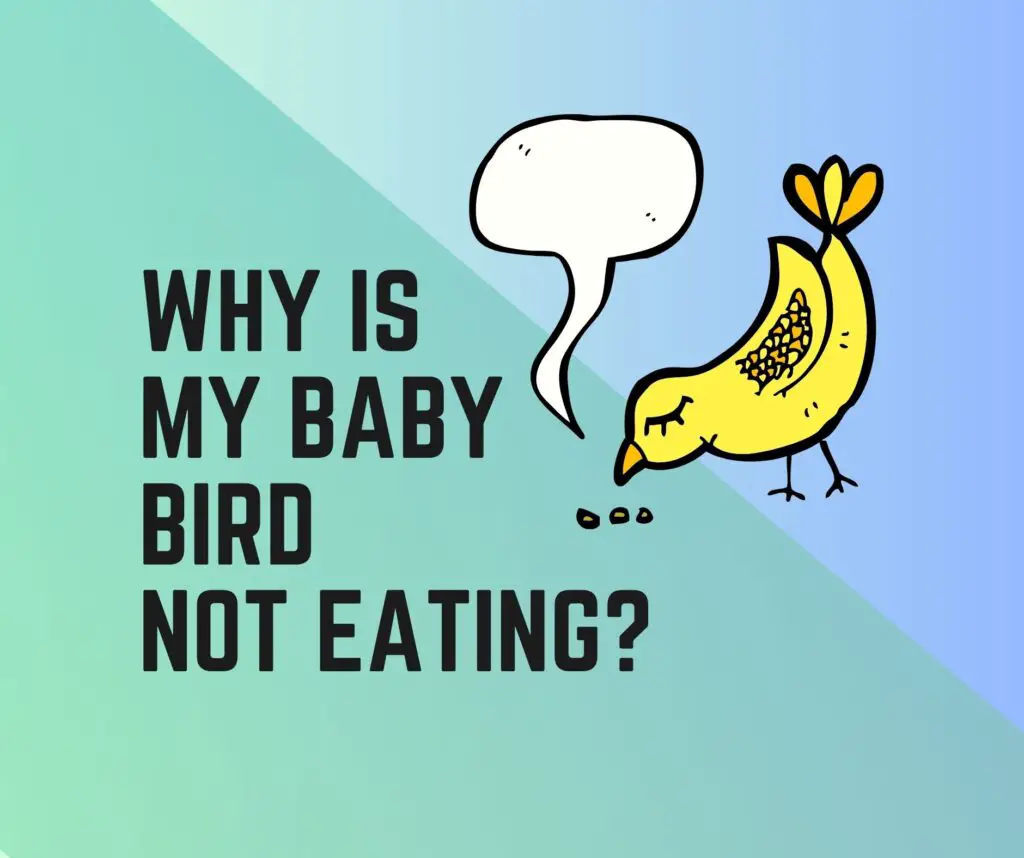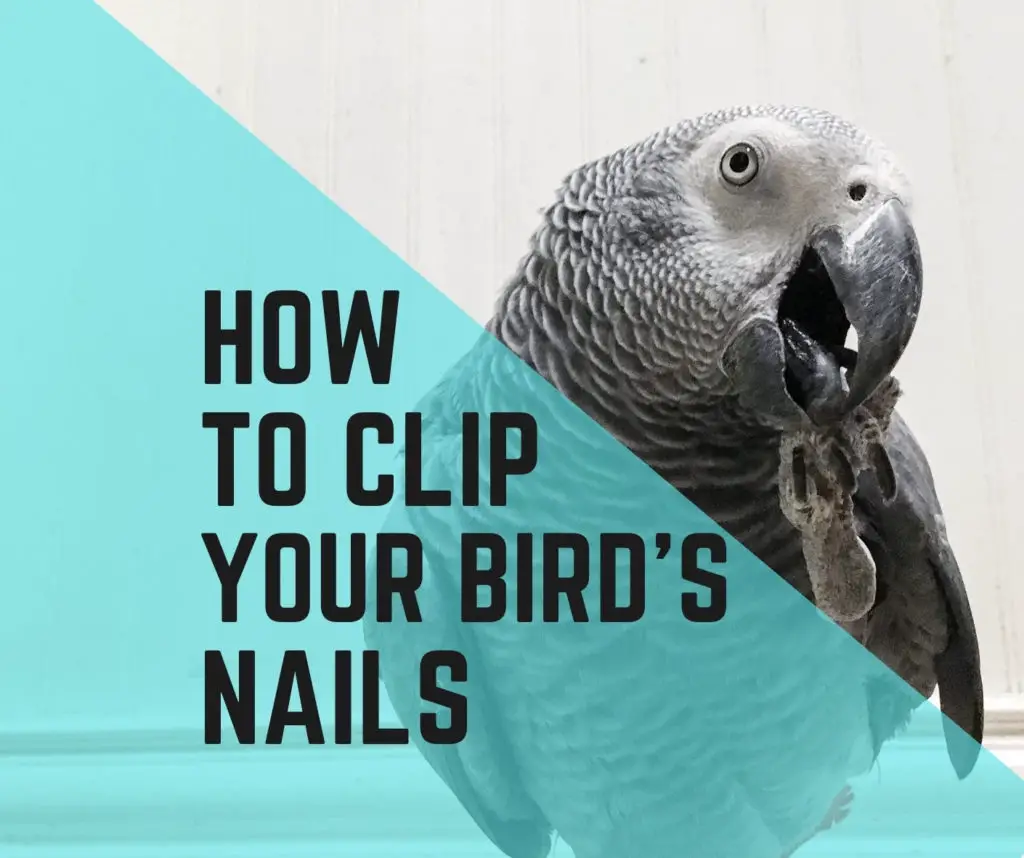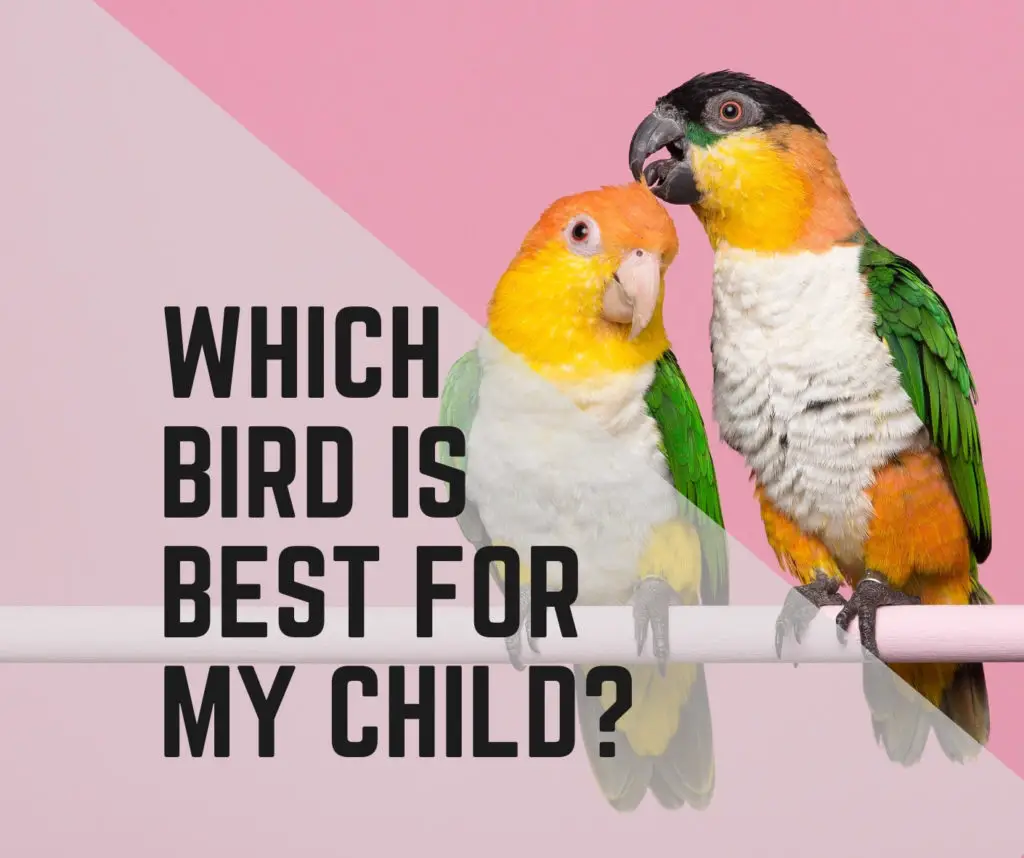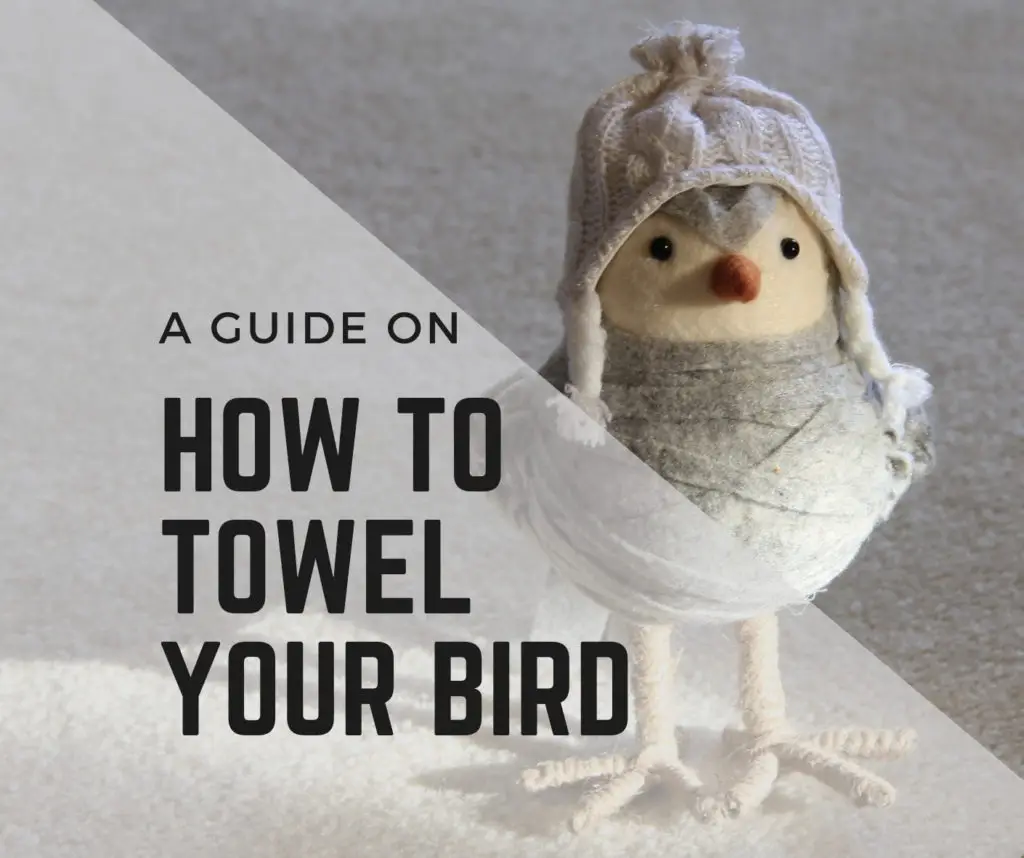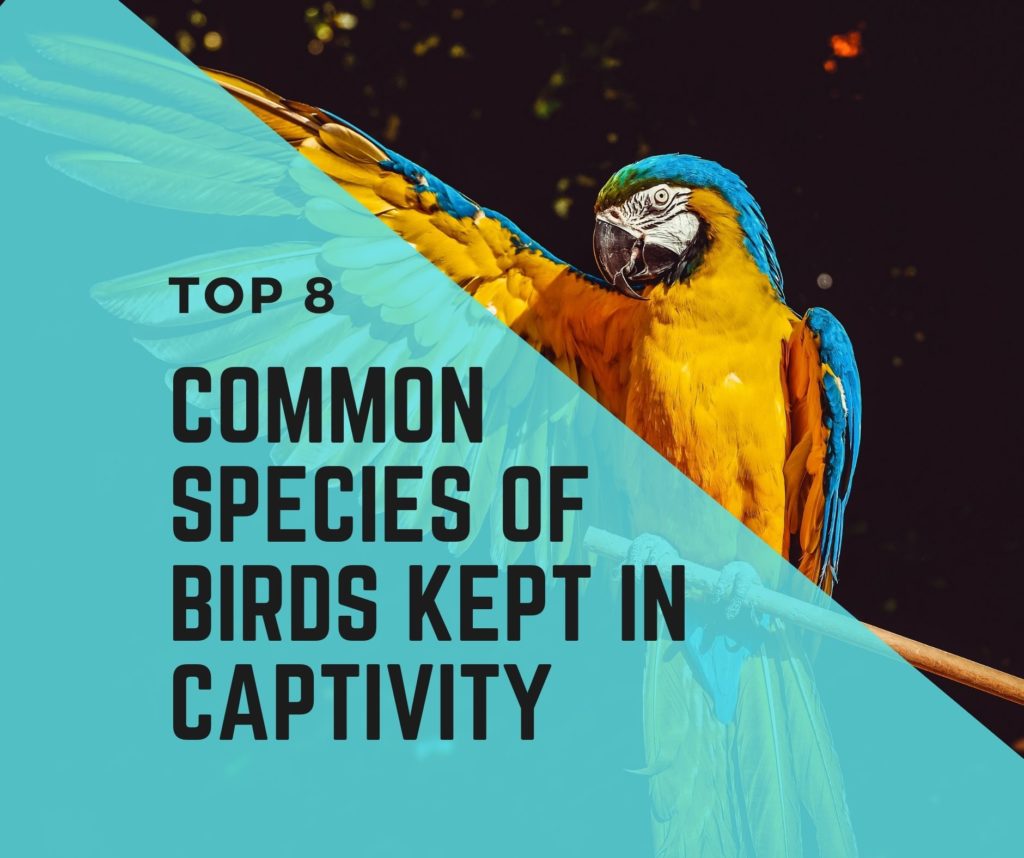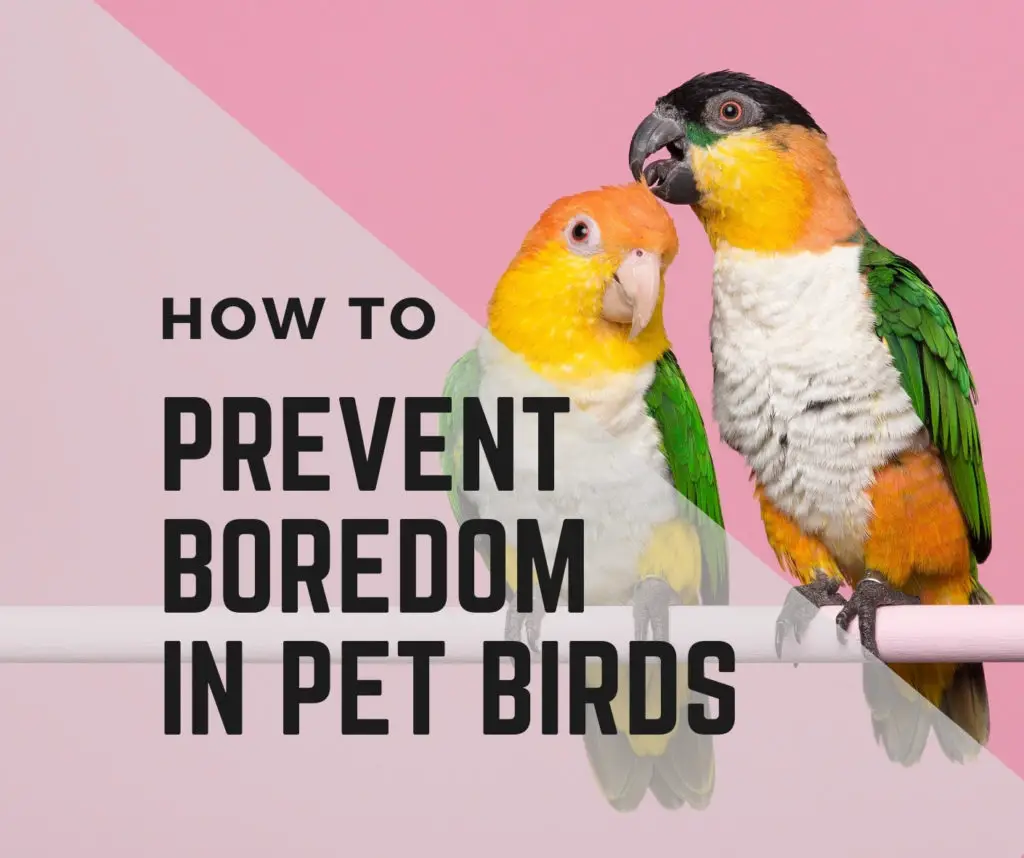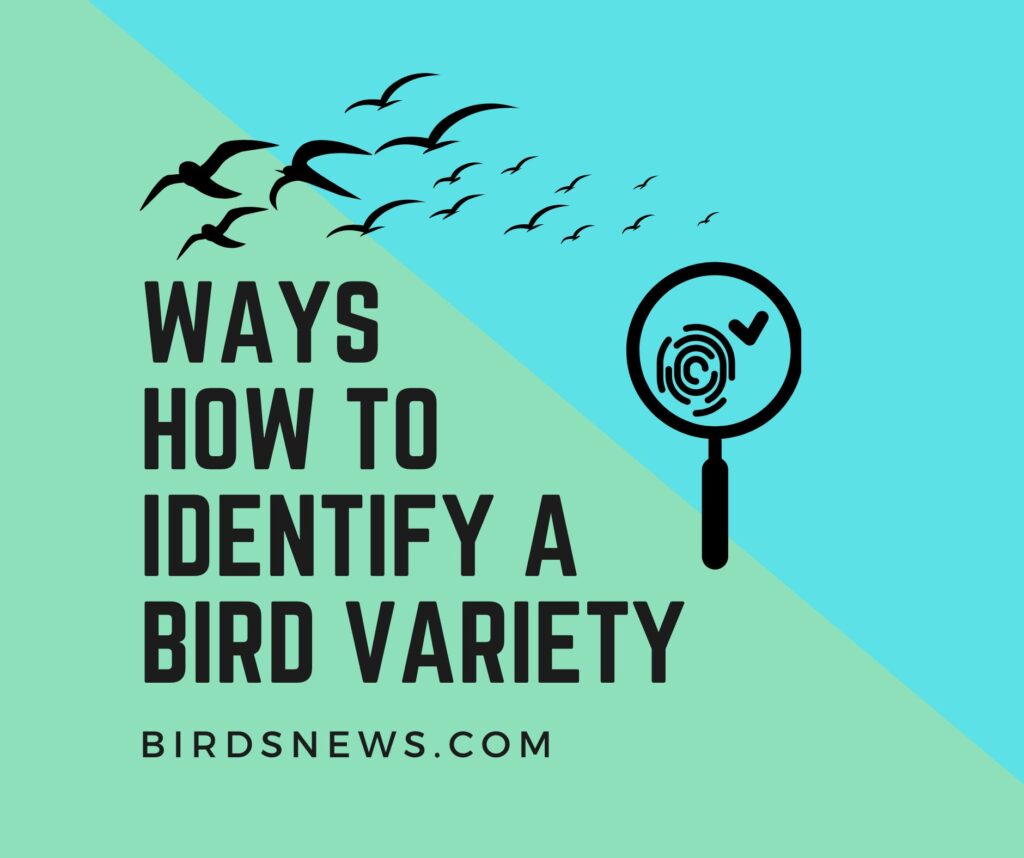Worried about why your Baby Bird is Not Eating? Well, you are not alone since a lot of new bird parents often bring this concern.
Eating is crucial for birds’ health and overall well-being. Just like any living creature, birds need proper nutrition to thrive, and food is vital for them. A well-balanced diet provides birds with the essential nutrients, energy, and building blocks that are important for their growth and management. However, at times, birds, especially baby birds, simply refuse to eat. From adjusting to new environments to potential health concerns, there could be various reasons behind the same.
Join us as we learn different reasons leading to Baby Bird Not Eating. Whether you are an experienced bird enthusiast or a first-time bird keeper, these insights will definitely help you. So, instead of just overlooking this issue, here’s how and why you need to address it.
13 Reasons (Explained) Why Your Baby Bird Is Not Eating
A Baby Bird not eating at all is a nightmare for every pet parent. And since small birds have a high metabolism and they can eat multiple times a day, their not eating at all is a serious concern. Baby Birds need a steady intake of food; the exact number of times can vary. However, if your Baby Bird is not eating at all or eating very less frequently for a few days now, it is alarming. Here are some of the reasons explaining the “Not Eating” behavior in Baby Birds:
- Adjustment Period: Just like humans, baby birds need time to adapt to their new environment. If they are brought to new surroundings, it may affect their appetite. Or, in simpler words, it’s their version of feeling homesick.
- Stress and Anxiety: Birds can get stressed easily, which can lead to loss of appetite. Maybe they are losing appetite due to loud noises, lots of people around, or other changes. Or if the bird is anxious due to any reason (including fear of predators), it may stop eating.
- Illness or Pain: If your baby bird is sick or in pain, it might not feel like eating. The situation is understandable as we humans will react the same when sick or in pain. So keep an eye on your bird, and if it’s not eating for a while, visit a Vet.
- Feeding Schedule: Birds, like us, have their preferences and routines. If the feeding schedule is off, they might not eat as much.
- Dietary Preferences: Just as we might not enjoy certain foods, baby birds might be picky too. Or the food you are offering is too much for the bird (too hard or big to chew). They might not like what’s offered, impacting their eating habits.
- Lack of Interaction: Birds are social creatures. If they’re feeling lonely or not engaged, their appetite could decrease.
- Temperature: Birds are sensitive to temperature changes, and thus, if it is too hot or cold, they may not eat. It happens because the environment is simply uncomfortable, and they do not have the energy to eat.
- Weaning: Depending on the bird species, babies go through a weaning phase where they transition from a liquid-only diet to solid food. It is similar to how human babies go from an only-milk diet to eating solids. During this phase, the baby birds may like some food and not like others, resulting in less frequent eating.
- Molting: During molt, birds’ energy goes into growing new feathers, and they might not feel like eating. When birds molt, they may not go completely off food but decrease their diet.
- Dirty Feeding Area: Birds are known to avoid eating from dirty feeding dishes.
- Change in Food: Birds can be hesitant to eat new foods. Introducing a sudden change in their diet might lead to reluctance.
- Age: Young birds might eat less as they are learning to feed themselves.
- Breeding Season: Some birds naturally eat less during breeding season due to hormonal changes. Specific hormones in their body affect their appetite, making them eat less or not at all. It is similar to how kids who enter the teenage go through a change in their eating habits. Or how females, during their Menstrual cycle or pregnancy, go through an eating disorder.
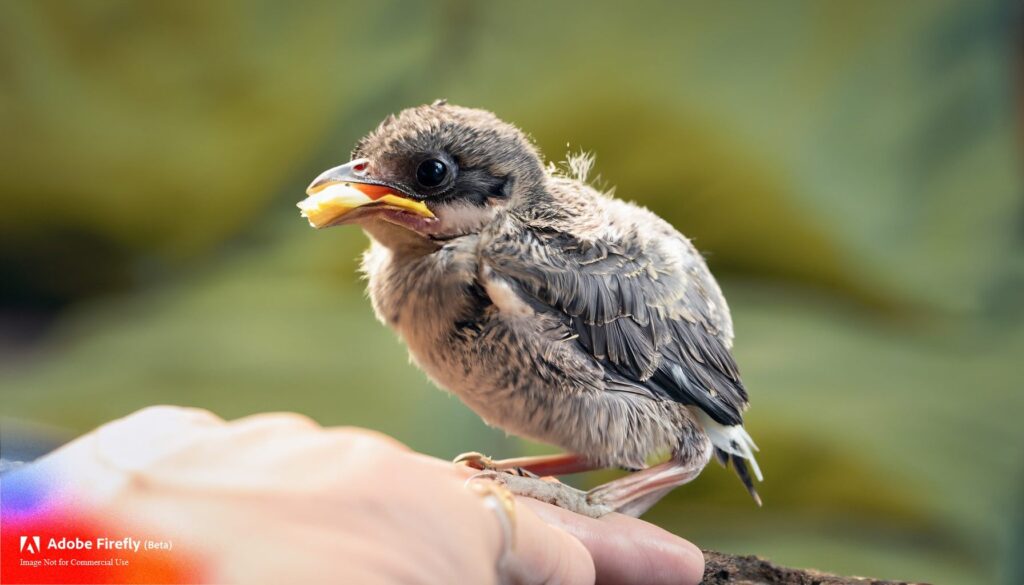
What Do You Do When a Baby Bird Won’t Eat?
If you have a Baby Bird in your yard or as a pet at home, you must be concerned about its dietary schedule. In a situation when the Baby Bird refuses to eat, here’s all that you can do:
- Observe the Baby birds very carefully, paying attention to their behavior. Monitor any signs of stress, anxiety, illness, or other discomforts. Upon sensing any, reach out to a veterinarian who specializes in avian care. To address any such physical or mental issue, expert guidance is crucial.
- Make sure the bird’s living space is comfortable and stress-free. Avoid sudden changes and ensure the temperature is suitable for the species.
- Offer a variety of foods to your Baby birds to find out their dietary preferences. Doing so may encourage them to eat while increasing their appetite.
- Your Baby Bird isn’t eating since it is very young, and eating on its own can be a struggle. If that’s the reason, you might need to hand-feed it. You can also consult a professional for proper techniques and suitable food.
- Ensure the bird isn’t injured and can comfortably reach its food and water.
- Since birds are sensitive to environmental changes, keep noise and disturbances to a minimum, especially when they are eating.
- Make sure the bird has access to fresh water. There are chances that dehydration is reducing your birds’ appetite.
- Sometimes, birds might take time to adjust to changes or regain their appetite.
If none of the above tips are of your help, consult a professional bird rehabilitation. You cannot let your bird go off food or eat less for long as it will impact their health, especially when they are in the growing phase.
7 Ways To Feed a Baby Bird
Here are some of the tips that will help you to feed your Baby Bird:
- Take a clean, small syringe without a needle and use it to feed the bird. Since you cannot feed just anything from the syringe, here’s a tip- In a bowl, mix appropriate bird formula and warm water. Give it a nice stir until it dissolves well, leaving lumps behind. Once the mixture is at room temperature, fill it in the needless syringe and gently dispense it into the bird’s mouth. Hold the bird securely and be cautious not to force-feed.
- Or take an eye dropper for small birds. Gradually release the mixture into the bird’s beak, letting it swallow naturally.
- If the baby bird is already into eats (solid) eating phase, you can feed them with small spoons. Find these spoons in the kids’ utensils section. Simply place the food near the bird’s beak, and it might start pecking and eating.
- Or try feeding commercial bird formulas and follow instructions to mix them correctly.
- Prepare a mixture of baby bird formula, softened pellets, or other suitable foods. Mash it into a semi-liquid consistency and offer it with a spoon or a shallow dish.
- Naturally, Baby Birds eat regurgitated food from their parent birds. If that’s what stops them from eating, mimic placing small bits of food in the bird’s beak. You can use tweezers or forceps for that.
- Baby birds need to eat often and try to eat them frequently. However, make sure you learn about the bird’s species first for feeding frequency and portion size.
If you’re unsure, consult a veterinarian or a bird rehabilitator.
Why You Shouldn’t Ignore This Behavior? Baby Bird Not Eating
You should never ignore or neglect if your Baby Bird is refusing to eat. Such behavior can have serious repercussions on birds’ health. The behavior/ pattern of not eating may also indicate an underlying issue that requires immediate attention. Ignoring the same may lead to further serious health complications. Not eating food for long or irregular feeding habits can also hinder the bird’s growth and development.
A baby bird’s refusal to eat could be indicative of various concerns, such as health problems, stress, or changes in the environment. Failing to address these issues promptly could weaken the bird’s immune system, making it more susceptible to diseases. It is important to learn that proper nutrition is crucial for birds’ growth, especially when they are at their early stage of life. Ignoring their refusal to eat might result in malnutrition and impact their overall well-being.
Bottom Line…
Overall, your Baby Bird may refuse to eat due to numerous reasons. However, a baby bird’s refusal to eat is a vital signal of potential problems that need immediate attention. Ignoring it risks their health and development.
Timely attention and professional advice are crucial for their well-being.

Hi, There and Welcome to BirdsNews.com, is here to help you learn and care about pet birds. and this blog is a journal of everything I’ve learned.

